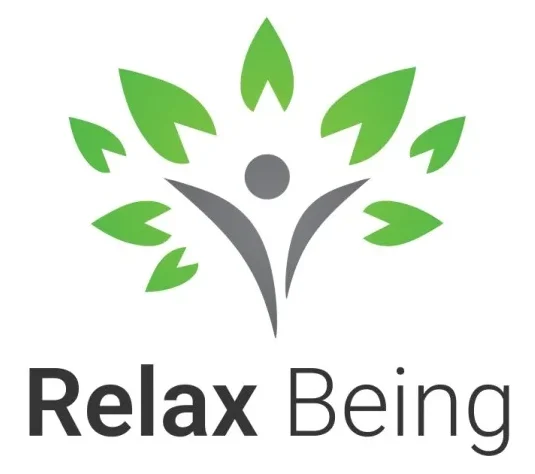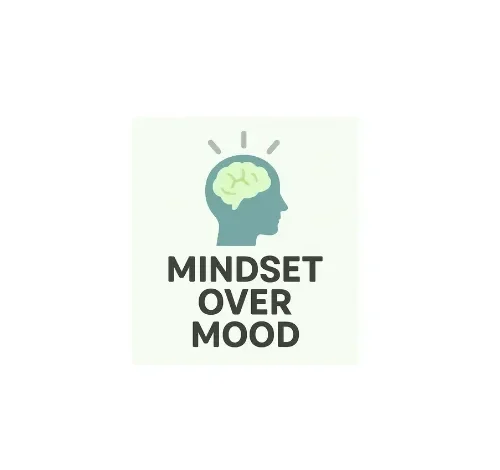Hydration and Mental Health
How Are They Related?
Hydration is important to many bodily functions, but did you know it can affect your mood, too?
The link between hydration and mental health to improve brain function, mood, and overall well-being. Beyond keeping the body cool by regulating temperature and protecting vital organs, proper hydration supports bodily functions like maintaining cellular strength and electrolyte balance.
As someone who values athletic performance, I noticed that even slight dehydration affects my stamina, reminding me how deeply this simple habit is tied to both physical energy and overall well-being.
What often isn’t fully understood is how closely drinking water is linked to mental health. Staying hydrated doesn’t just improve cognitive function, it also stabilizes mood and amplifies the subtle benefits of a clear mind.
On days I forgot to hydrate properly, I found my focus slipping and irritability creeping in. The connection between mental sharpness and hydration and mental health is real, making mental health feel less abstract and more like something we can actively support through daily choices.
What Is Mental Health?
According to the Centers for Disease Control and Prevention, mental health is an umbrella term that encompasses a person’s emotional, psychological, and social well-being. It is shaped by many factors, such as how a person thinks, feels, and acts, or how one handles stress and interacts with a variety of life experiences.
From my own journey, I’ve noticed how lifestyle choices deeply affect mood and focus. For example, during periods when my habits were inconsistent, my mental state would fluctuate over time, reminding me that caring for the mind is an essential element of overall balance and hydration and mental health.
Certain behaviors can make this balance harder to maintain. A sedentary routine, lack of activity, smoking, or overeating may increase the risk of developing serious conditions like diabetes, heart disease, or other forms of illness.
These patterns may also heighten the likelihood of depression or chronic struggles that slowly erode daily resilience. Through both research and personal observation, I’ve seen how the smallest adjustments like adding movement or mindful hydration can protect mental strength and guard against long-term challenges.
Are Hydration and Mental Health Linked?
When I first began exploring the link between hydration and mental health, I noticed how even a slight change in my status of water intake affected my attention and memory. Many studies now confirm this, showing an association between low fluid intake and mental conditions such as depression and anxiety.
In one study of over 3,000 Iranian adults, researchers discovered that men and women who drank less than two glasses per day had a higher risk of poor mood, while those with the greatest intake experienced lower incidences of these challenges. Similar results appear in the U.S., where children ages 9 to 11 who consumed at least the desired amount of water showed better cognitive performance. This suggests that even simple drinking habits shape emotional functions and overall brain health.
Other research, though still relatively new and limited in number, reveals how dehydration impacts short-term mental acuity, sharpness, and even self-esteem. In a group of college-aged males in China, participants asked to abstain from water for 36 hours showed negative effects on energy, mood, and reaction time, but a rehydration period led to noticeable improvements.
The body’s flexibility and ability to shift between low and high states of hydration may explain why some habitually under hydrate yet function, while others benefit most from ad libitum intake, or drinking as much as desired. Although the area of mind-water balance is still developing, these results highlight how even small shifts in hydration can shape daily life and overall hydration and mental health.
Tips to Stay Hydrated
The amount of water you should drink each day can vary widely, depending on your activity level, exposure to heat, humidity, sex, and body size. The bottom line is that your brain and body both function better when you get plenty of fluids throughout the day. However, I’ve noticed, just like many people, that it can be challenging to remember to hydrate consistently. To help, having enough guidance and tips makes a big difference in maintaining hydration and mental health.
Health experts like Jennifer Williams, MPH, a nutrition scientist at Abbott specializing in hydration, often suggest creative habits. For example, consider pairing sips of water with meals rather than reaching for soda, juice, or coffee, which are often less hydrating. I personally find that aiming to take a small drink every hour I’m awake, and keeping a reusable bottle handy, helps me replenish as needed. To make it more enjoyable, I sometimes enhance the taste adding a squeeze of citrus or some fresh mint to encourage more intake without much effort, supporting better hydration and mental health.
Food can play a role too. You can eat water-rich fruits and vegetables such as watermelon, zucchini, grapes, celery, and spinach. In fact, the Academy of Nutrition and Dietetics highlights that about 20% of your daily hydration comes from food. This means the process of staying hydrated isn’t just about drinking, it’s about creating a lifestyle where small mindful choices build up to lasting balance and reinforce hydration and mental health.
Tips for Hydration in Cold Weather
When the weather turns chilly, many people forget to drink enough water because they don’t feel as thirsty as on a hot day. Yet our bodies still need around 80% of their hydration from fluids, not just from foods. I’ve often found it helpful to keep reusable bottles nearby as a reminder to consume a cup of fluid every hour I’m awake. Even 1/2 to 1 cup at a time can add up to plenty by evening, making it easier to stay hydrated and maintain hydration and mental health.
There are many ways to meet hydration needs beyond plain beverages. During cold months, I love hot tea with a splash of lemon or lime, sometimes adding fruit slices for a light spa touch. If you’re struggling with intake, try flavored water or sparkling spritzers mixed with a little juice. Warm broth based soups and hearty stews are also excellent for increasing fluids while keeping you cozy.
Cold weather activity, even if it doesn’t cause much sweating, can still deplete the body. That’s where electrolyte-containing options in hydration and mental health care come in handy, especially if you’ve been dealing with vomiting or diarrhea, which quickly replace lost minerals. I often suggest rotating between beverage ideas from warm drinks to light spritzers so hydration never feels boring or forced. This approach not only supports physical needs but also lifts mood by turning simple hydration into a comforting routine.
How Much Water Do You Need?
The amount of water you should drink in a day can vary depending on your activity level, exposure to heat or humidity, sex, and body size. The bottom line is simple: most people need plenty of fluids to function well, especially when life gets challenging. From my own experience working outdoors during hot summers, I had to remember to hydrate consistently, or I would quickly lose focus. Staying hydrated does not just help your physical state, it also supports your mood and clarity,further emphasizing the importance of hydration and mental health.
For practical tips, I often think of advice shared by Jennifer Williams, MPH, a nutrition scientist at Abbott specializing in hydration. She suggests pairing meals with soda, juice, or coffee, but also aiming to spread fluids across each hour you’re awake. Keeping a reusable bottle handy makes it easier to replenish when needed, and I find it useful to enhance flavors with a squeeze of citrus or a few leaves of fresh mint to encourage intake, promoting hydration and mental health daily.
Food also contributes more than we realize. You can eat water-rich fruits and vegetables like watermelon, zucchini, grapes, celery, or spinach to naturally boost hydration. In fact, the Academy of Nutrition and Dietetics notes that about 20% of your daily intake of fluids can come from food. This reminder has always helped me keep a balanced approach combining drinks with foods that support overall health and hydration and mental health.
Body Functions That Depend on Hydration Status
From my own experience of struggling through hot summer days, I realized how much the body depends on water. An adult’s body consists of nearly 60% fluid, and this single core component is essential for every bodily function. Without proper hydration, it’s not possible to keep the digestive system running smoothly or to regulate body temperature.
Even going without enough water for a few weeks can affect how the brain and spine feel, and I’ve noticed it makes daily tasks harder than they should be, highlighting hydration and mental health importance.
Think about how the bloodstream works. It needs water to deliver nutrients to cells, filter waste through the kidneys, and excrete urine. When hydration drops, the system doesn’t work as it should. I’ve often seen this in people who forget to drink enough water fatigue builds up, and even their mood shifts. Keeping this balance is not just about drinking when thirsty; it’s about knowing how life depends on it on the average day, linking hydration and mental health in every function.
Water doesn’t just move through us it also protects delicate organs like the brain and spine. It cushions, keeps things flowing, and makes sure the digestive process stays on track.
When we ignore this simple habit, even food digestion slows down. For me, adding a glass of water before meals became a small change with big benefits. It reminded me that hydration and mental health isn’t separate from health, it’s the invisible thread that ties the whole system simply together.



